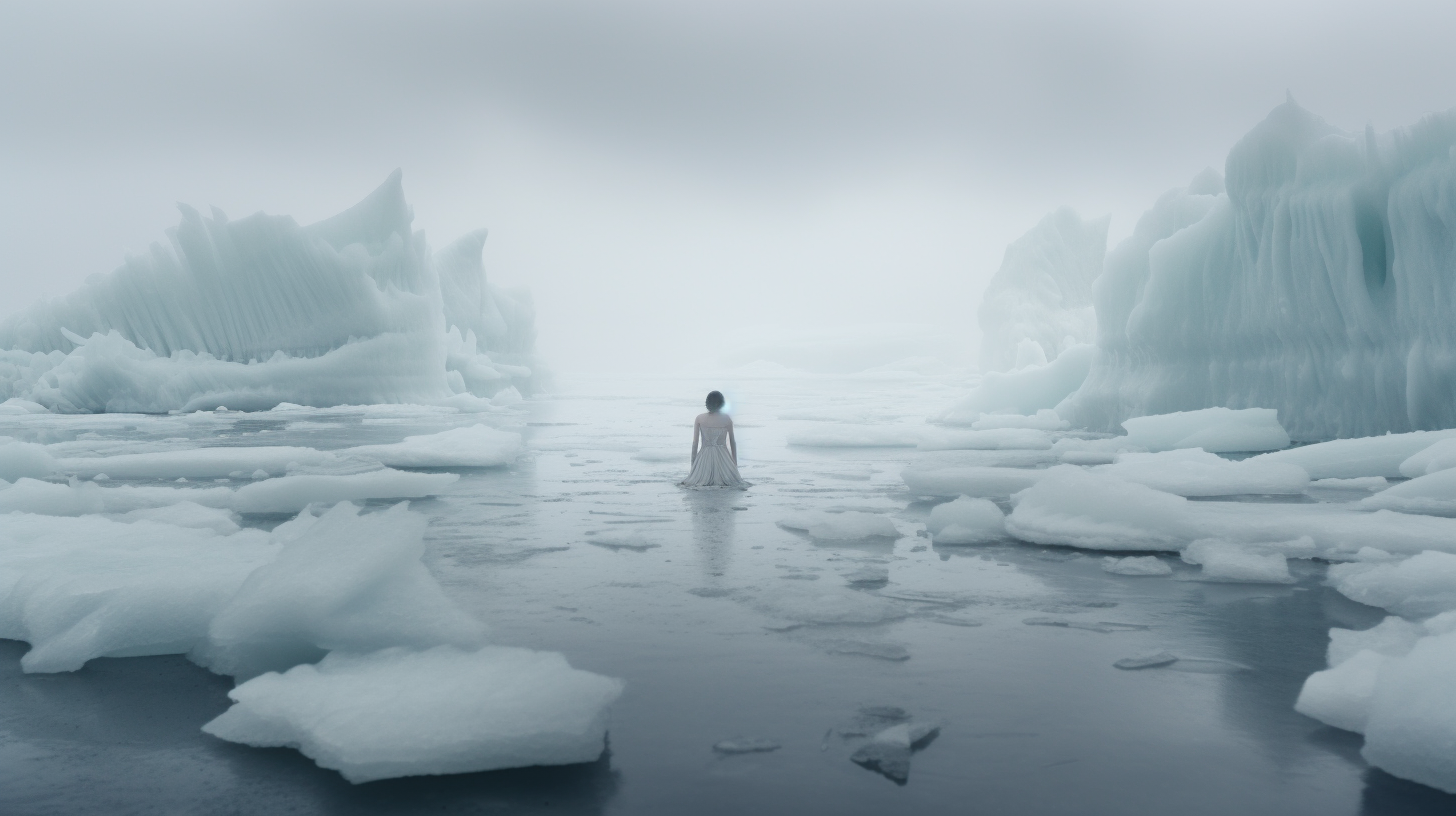The vast blue canvas of our planet, once crowned with polar frost and teeming with an abundance of life, now whimpers under an insidious siege. Ocean’s Silent Cry for the Vanished Ice is not a tale of distant lands or future timelines. It unfolds beneath our feet and before our squinted eyes, veiled by mist and despair.
Our oceans, the very cradle of biodiversity, have witnessed their guardians of white—the polar ice caps—dissolve into memory. These icy monoliths, once impenetrable, have succumbed to a silent onslaught, trickling down into the abyss. The ripple effects are catastrophic, forming a lament that travels across meridians and parallels, reaching the darkest trenches and the highest crests of our ailing seas.
The ice’s departure leaves behind phantom waves: indicators of a calamity too profound for simple ripples upon the surface. It triggers insidious thermal expansion, where the remaining liquid heart of our planet swells, an incontrovertible response to the warming globe. Arctic narratives once spun around vast glaciers and mighty bears pacing through snow-laden realms, now recast as a requiem for ice, lost to the deep.
Distressed marine creatures chorus a dirge, once sung in vibrant tones now muted by water, warmer and less forgiving. The Polar bear’s dominion has fragmented, the krill’s journey disrupted, and the coral symphony bleached into silence. Their struggles paint a sardonic picture of adaptation—a forced embrace of unbearable conditions. Where life once flourished, only the spectre of existence remains, clinging to the flickers of a past not far behind us.
Our previous pieces, ‘The Last Tide – Oceans Recede, Life Ebbs Away’ and ‘Terra Aquatica – Earth’s Landmass Under Siege’, have laid bare the visceral scars of a world betwixt decay and transformation. We continue to delve deeper into this narrative, contrasting the relentless rise of water levels with the paradoxical ebbing of life. As if mocking our terrestrial tenacity, the oceans claim more land each day, forcing a somber reflection on our priorities and legacies.
What remains in these altered depths is not just the detritus of human neglect but also the enigma of adaptation. Is there ingenuity in the despair? Can any organism, no matter how resilient, truly navigate this desecration? Questions plague researchers as they witness ecosystems contorting into grotesque parodies of their former selves.
In this oceanic theatre, the vanishing ice is not merely an event; it’s a harbinger, a clarion call too feeble against the cacophony of human industry. What the ice leaves behind is a world less reflective—metaphorically and literally. Solar rays, once repelled by the gleaming white surfaces, now pierce the ocean, delving into its depths, unfurling waves of thermal chaos.
Yet, as the planet heats, the dialogue cools. Conversations around climate action, once heated and urgent, now dwindle to whispers, akin to the beleaguered marine conversations beneath the waves. It’s as if the pathos of the moment is too dense to permeate our social consciousness, too stark a truth for our collective psyche.
This silent cry of the ocean, held captive in the clutches of an ever-warming embrace, echoes a planet in duress. Will this cry resonate within the chambers of decision and power, or will it ebb away, an unheard soliloquy at the end of the Anthropocene?
As chroniclers of this Green Dystopia, we are the scribes of desolation. Yet, hidden amidst this dystopian tapestry might be strands of knowledge, shimmering faintly, to be seized and woven into the narrative of recovery. For now, we document, we speak in hushed tones of reverence for what once was, and in bolder shades of forewarning for what is poised to come—if only the cries do not fall on deaf ears.
